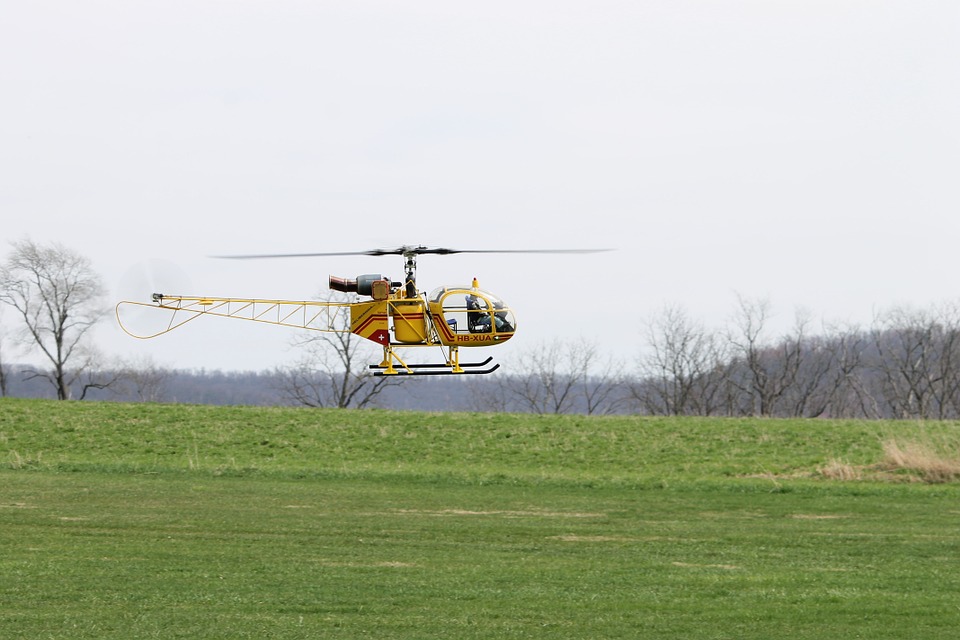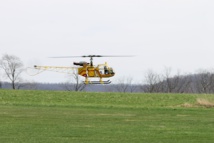Operators such as CHC Group Ltd. and Bristow Group Inc., which transport workers and cargo of energy companies, say they have been surprised by how serious the energy industry fall was. In addition, they do not see any prospects for recovery over the next year.
This drop happened in difficult times for helicopter manufacturers such as Airbus Group SE and Textron Inc., which are introducing new models. Among the sufferers is also General Electric Co., which last year paid $ 1.8 billion to Milestone Aviation Group, the largest company providing helicopters leasing.
The companies’ management claims that one fifth of 1900 helicopters, which are used in the oil and gas industry worldwide, is currently idle or used only partially. Besides, it is expected that over time, excess capacity will only increase.
Helicopters, which are used in the oil and gas sector, make up 26% of the world's commercial fleet, according to the data of AgustaWestland, a division of Finmeccanica SpA.
Operating companies have tried to diversify its business, expanding into industries such as search and rescue operations, medical and VIP flights.
However, John Mannon, consultant in the sector, notes a limited number of helicopters that can be transferred to other markets or used for other purposes, since each customer has their own preferences on the helicopter’s type and configuration.
For example, some helicopters are equipped with new radars, which simplifies the landing and take-off from oil platforms in bad weather.
As a rule, helicopters intended for flights above water are equipped with floatable cameras, which allows them to remain on the surface of the water if there is a need of a forced landing.
Mannon also said that for the companies will have to look for opportunities to store unsold helicopters the first time in the history.
Manufacturing companies claim that they have limited space in their warehouses, so they need to look for alternatives now. Among other variants of accommodation are packing in shrink film or under canopies with climate control, which were originally used to protect expensive classic cars.
Era Group Inc., one of the largest helicopter operators in the Gulf of Mexico, said that the company may cancel or defer almost three-quarters of its orders, including an agreement with a division of Lockheed Martin Corp. Sikorsky and AgustaWestland.
The market leader CHC, held the IPO two years ago, reported a decline in market value after reaching a maximum value of $ 1.3 billion. After this, the company was excluded from the register of the New York Stock Exchange on January 1st.
The company has hired consultants to assist in the issue of debt restructuring.
CHC have cut spending, reduced operating and fleet, yet the company is still optimistic about the future and intends to survive the storm in the market.
Shares of a Houston company Bristow, the second largest operator in the world in terms of sales, decreased by 77% compared to the maximum value.
Growth of explorations in the period when the price of oil was above $ 100 per barrel, allowed operators and leasing companies to place orders for new helicopters that could fly faster and farther. The operators were going to lease them to companies like Royal Dutch Shell PLC and Statoil ASA.
So high was the demand for new helicopters at the end of 2013, that it led to a year-long queue at the biggest models of helicopters. This happened despite the fact that helicopters manufacturers were operating at full capacity.
The biggest rise in demand was observed in the so-called "average" category - vehicles worth $ 30 million, capable of carrying 12 to 18 workers at a distance of 320 thousand kilometers and more to platforms off the coast of Norway, Brazil and Africa.
Airbus and AgustaWestland offered faster and larger models that have been designed to serve the offshore fields.
At the moment, energy companies have cut budgets for exploration and production, forcing the operators of helicopters to cut staff, as well as to postpone or cancel orders for helicopters.
The company Lockheed Martin, which paid $ 9 billion for Sikorsky in the past year, is expecting the unit’s commercial sales to be reduced to $ 375 million this year, compared with a maximum value of $ 1.5 billion this in 2013.
Lockheed was mainly interested in military helicopters Sikorsky, but commercial traffic market also looked attractive for them.
source: theaustralian.com.au
This drop happened in difficult times for helicopter manufacturers such as Airbus Group SE and Textron Inc., which are introducing new models. Among the sufferers is also General Electric Co., which last year paid $ 1.8 billion to Milestone Aviation Group, the largest company providing helicopters leasing.
The companies’ management claims that one fifth of 1900 helicopters, which are used in the oil and gas industry worldwide, is currently idle or used only partially. Besides, it is expected that over time, excess capacity will only increase.
Helicopters, which are used in the oil and gas sector, make up 26% of the world's commercial fleet, according to the data of AgustaWestland, a division of Finmeccanica SpA.
Operating companies have tried to diversify its business, expanding into industries such as search and rescue operations, medical and VIP flights.
However, John Mannon, consultant in the sector, notes a limited number of helicopters that can be transferred to other markets or used for other purposes, since each customer has their own preferences on the helicopter’s type and configuration.
For example, some helicopters are equipped with new radars, which simplifies the landing and take-off from oil platforms in bad weather.
As a rule, helicopters intended for flights above water are equipped with floatable cameras, which allows them to remain on the surface of the water if there is a need of a forced landing.
Mannon also said that for the companies will have to look for opportunities to store unsold helicopters the first time in the history.
Manufacturing companies claim that they have limited space in their warehouses, so they need to look for alternatives now. Among other variants of accommodation are packing in shrink film or under canopies with climate control, which were originally used to protect expensive classic cars.
Era Group Inc., one of the largest helicopter operators in the Gulf of Mexico, said that the company may cancel or defer almost three-quarters of its orders, including an agreement with a division of Lockheed Martin Corp. Sikorsky and AgustaWestland.
The market leader CHC, held the IPO two years ago, reported a decline in market value after reaching a maximum value of $ 1.3 billion. After this, the company was excluded from the register of the New York Stock Exchange on January 1st.
The company has hired consultants to assist in the issue of debt restructuring.
CHC have cut spending, reduced operating and fleet, yet the company is still optimistic about the future and intends to survive the storm in the market.
Shares of a Houston company Bristow, the second largest operator in the world in terms of sales, decreased by 77% compared to the maximum value.
Growth of explorations in the period when the price of oil was above $ 100 per barrel, allowed operators and leasing companies to place orders for new helicopters that could fly faster and farther. The operators were going to lease them to companies like Royal Dutch Shell PLC and Statoil ASA.
So high was the demand for new helicopters at the end of 2013, that it led to a year-long queue at the biggest models of helicopters. This happened despite the fact that helicopters manufacturers were operating at full capacity.
The biggest rise in demand was observed in the so-called "average" category - vehicles worth $ 30 million, capable of carrying 12 to 18 workers at a distance of 320 thousand kilometers and more to platforms off the coast of Norway, Brazil and Africa.
Airbus and AgustaWestland offered faster and larger models that have been designed to serve the offshore fields.
At the moment, energy companies have cut budgets for exploration and production, forcing the operators of helicopters to cut staff, as well as to postpone or cancel orders for helicopters.
The company Lockheed Martin, which paid $ 9 billion for Sikorsky in the past year, is expecting the unit’s commercial sales to be reduced to $ 375 million this year, compared with a maximum value of $ 1.5 billion this in 2013.
Lockheed was mainly interested in military helicopters Sikorsky, but commercial traffic market also looked attractive for them.
source: theaustralian.com.au



















